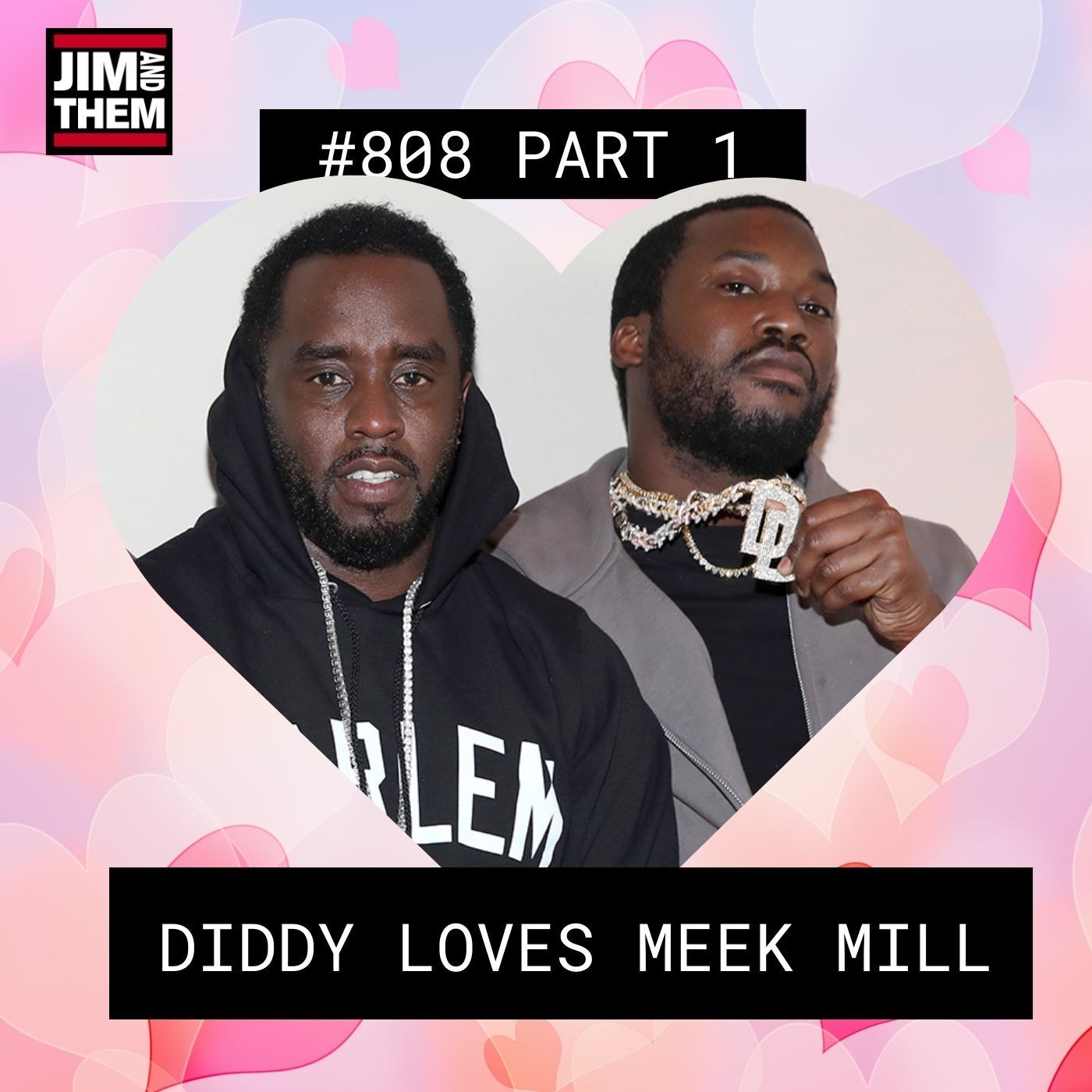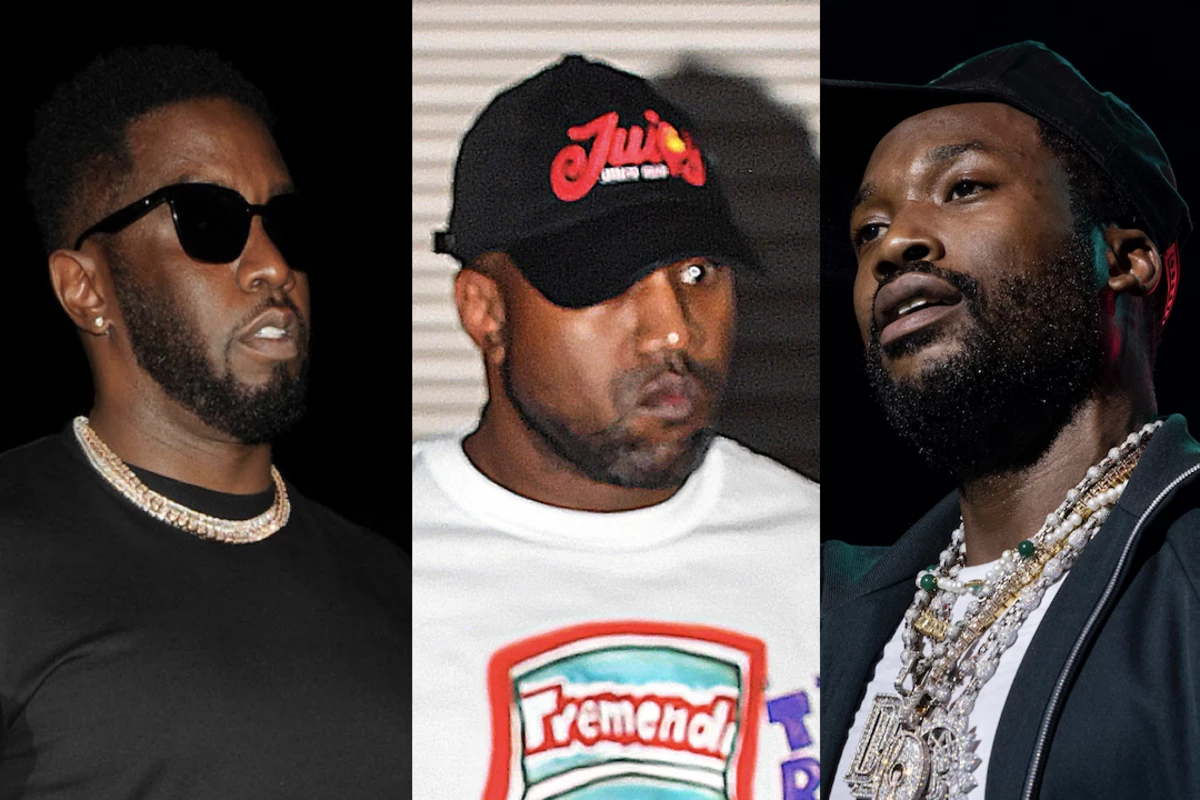There's been a lot of talk lately, and when names like Meek Mill and Diddy come up in conversations about audio, it can make us think about many things. Sometimes, just the sound of a name can spark curiosity about the words we use every day. It's almost as if the very word "meek" itself, in a way, takes on a fresh light when we hear it associated with public figures and widely discussed topics.
You know, it's pretty interesting to consider how a single word can hold so much history and so many different shades of meaning. The term "meek" often brings certain ideas to mind, but the truth is, its original sense might be quite a bit different from what we commonly picture today. We often use words without really pausing to consider their full background, or what they truly meant in earlier times, so this is a chance to do just that.
So, as we think about the phrase "Meek Mill Diddy audio," let's take a moment to really look at the word "meek." What does it actually convey? Does it suggest a lack of strength, or something else entirely? Our exploration here will pull directly from ancient texts and interpretations, giving us a clearer picture of this powerful, yet sometimes misunderstood, concept.
- Gloria Borger Illness.https
- Cathy White Beyonce.https
- Index
- Liam Payne Star Sign.https
- Marie Temara Onlyfans.https
Table of Contents
- The Deep Roots of 'Meek'
- Is 'Meek' a Weak Word? Understanding the Meek Mill Diddy Audio Context
- Biblical Insights - More Than Just Quietness
- How Does 'Meek' Compare to 'Humble' in the Meek Mill Diddy Audio Discussion?
- The 'Praus' Connection - A War Horse and a Gentle Spirit
- What Did Ancient Texts Really Say About 'Meekness' in the Meek Mill Diddy Audio Era?
- Different Translations, Different Shades of Meaning
- Can 'Meekness' Lead to Inheritance, Even in the Meek Mill Diddy Audio Spotlight?
The Deep Roots of 'Meek'
When we hear the word "meek," many of us might picture someone who is quiet, perhaps a bit timid, or even someone who lacks a strong will. However, this common view might not fully capture the original force of the term. In some older texts, particularly those from ancient languages, the idea behind "meek" carried a different kind of weight, a kind of controlled power. It's really quite fascinating how a word can shift its feel over long periods of time, you know?
For example, in the King James Version of Psalm 37:11, it states, "but the meek shall inherit the earth." This phrase, which is a bit of a cornerstone, suggests a benefit, a reward, for those described as "meek." It's not about being weak, but rather about a quality that leads to something good, something truly significant. The text goes on to say they "shall delight themselves in the abundance of peace," which points to a state of deep contentment and well-being. So, it's not just about a personal trait, but about a way of being that brings about positive outcomes, apparently.
Another instance, Psalm 147:6, tells us that "the Lord lifteth up the meek." This expression implies that a higher power supports or raises up those who possess this quality. It's a clear indication that "meekness" was seen as a valued characteristic, something that merited divine favor, rather than something to be looked down upon. This is a very different picture from the one that often comes to mind when we hear the word today, as a matter of fact.
- Ainsley Earhardt.https
- Emily Compagno Height.https
- Was P Diddy On Csi Miami.https
- Kaitlan Collins Husband Nationality.https
- 324 Front Street Barnum Iowa.https
Is 'Meek' a Weak Word? Understanding the Meek Mill Diddy Audio Context
From what we can gather from ancient writings, the word "meek" did not always carry the sense of being weak or submissive that it often does in modern English. In fact, some scholars suggest that in its earliest forms, it might have had a very different set of implications. The idea that "meek" and "gentle" have really bad connotations in English that did not exist in other languages like "praus" is a point worth considering. This is really quite a shift in meaning, isn't it?
Think about a strong animal, like a war horse, which might be described by a word like "praus" in its original tongue. This same animal, powerful and ready for battle, would certainly not be called "meek" in English today without sounding a bit odd. This contrast highlights how much our language has changed over time, and how a single word can lose some of its initial strength. It's almost as if the word itself has gone through its own transformation, you know, much like public perception can shift around figures like Meek Mill or Diddy when new audio surfaces.
So, when we consider the word "meek" in the context of discussions around the Meek Mill Diddy audio, it's worth remembering that the term itself has a long and somewhat winding history. It's not just a simple description; it's a concept with layers of meaning that have evolved over centuries. Understanding these deeper layers can give us a fuller appreciation for how language shapes our thoughts and perceptions, and how a single word can mean so many different things to different people, or in different eras, basically.
Biblical Insights - More Than Just Quietness
The Greek word often translated as "meek" in biblical texts is "πραΰς" (praus). This term carries a richness that goes beyond simply being quiet or gentle. It suggests a certain strength, a controlled power, like a wild horse that has been trained and brought under command. The horse still possesses its inherent power, but it has learned to direct it, to use it purposefully, rather than wildly. This is a pretty important distinction, you know.
This idea of "praus" suggests a person who has their passions and strength under a firm hand, someone who is not easily provoked but has the capacity for great action when it is needed. It's about self-control, a kind of inner discipline that allows for a calm and measured response, even in challenging situations. This is very different from a picture of weakness or timidity, which is often what comes to mind for many of us today. It's more about a balanced disposition, arguably.
In Matthew 5:5, we find the famous line, "Blessed are the meek, for they will inherit the earth." This statement, like the Psalms, presents "meekness" as a desirable trait, one that leads to a significant reward. It's not a call to be powerless, but rather to possess a kind of inner strength that allows one to navigate the world with grace and purpose. This understanding of "meek" paints a picture of a person who is capable, yet chooses restraint, which is a really powerful concept, as a matter of fact.
How Does 'Meek' Compare to 'Humble' in the Meek Mill Diddy Audio Discussion?
The question of how "meek" contrasts with "humble" is bound up with how English words have changed their common usage over time. Sometimes, people use these two words as if they mean exactly the same thing, but there are subtle, yet important, differences. "Meek" tends to be somewhat quaint in usage now, and certainly not as widely used as "humble." This shift in common speech can make it a bit confusing to grasp the full original sense, you know.
If you look at a number of different English translations of the Bible, you will find the use of both "meek" and "humble." This suggests that translators saw distinct nuances between the two words, even if those distinctions have blurred in our contemporary language. The Hebrew word used in some contexts has a wider area of meaning compared to the English word "poor," which further complicates things. It's almost as if the translators were trying to capture a very specific flavor of meaning that no single English word could fully convey, basically.
For example, some scholars have suggested that the Hebrew word might be better translated as "miserable" rather than "meek" in certain instances, highlighting a state of affliction or need rather than just a personality trait. This interpretation, put forward by some, including a notable figure like Jordan Peterson, suggests that the "meek" are those who are in a vulnerable position, those who are not inclined to violence, and who therefore seek out a higher power for protection. This perspective certainly adds another layer to our understanding, especially when thinking about public figures and their standing, like those involved in the Meek Mill Diddy audio discussions.
The 'Praus' Connection - A War Horse and a Gentle Spirit
Let's return to the Greek word "praus." This word, translated as "meek," holds a particularly interesting image. It was used to describe a powerful animal, like a wild stallion, that has been broken in and trained. This animal still possesses its immense strength and spirit, but it has learned to submit to the rider's will. It is not weak; it is controlled. It is powerful, yet disciplined. This is a really important distinction, you know, for understanding the full scope of the word.
So, when ancient texts speak of someone being "meek" using the word "praus," they are not talking about someone who is timid or easily pushed around. Instead, they are describing a person who possesses great inner strength and passion, but who has learned to manage these qualities with grace and humility. It's about having power and choosing not to misuse it, or to use it only for good. This kind of self-mastery is a very different concept from what we often associate with "meekness" today, as a matter of fact.
Consider the idea of a person who has a sword and knows how to use it, but keeps it in its sheath. This analogy, which Jordan Peterson has used to explain Matthew 5:5, captures the essence of "praus" perfectly. It's about having the capacity for strength or even violence, but choosing restraint and peace. This perspective truly shifts our common understanding of "meekness" from a passive trait to an active choice of controlled power, which is pretty compelling, isn't it?
What Did Ancient Texts Really Say About 'Meekness' in the Meek Mill Diddy Audio Era?
When we look at the original language of texts like Matthew 5:5, the question arises: is "meek" a good translation for the original Greek word? The nuances of ancient languages are often difficult to capture perfectly in a single modern word. The Greek "praus" suggests a gentle disposition combined with underlying strength, a sort of mildness that comes from inner power, rather than from weakness. This is a very subtle distinction, you know, that can be easily lost in translation.
The concept of "meekness" in these ancient writings often implies a readiness to endure hardship without resentment, a patience in the face of injustice, and a reliance on a higher power for justice. It's not about being a doormat; it's about a settled spirit that doesn't lash out in anger or seek immediate revenge. This kind of inner calm, even when faced with difficult circumstances, is what the original texts seem to emphasize. It's a kind of resilience, arguably.
So, in thinking about the "Meek Mill Diddy audio" and how the word "meek" might be perceived today, it's helpful to consider that the ancient understanding of "meekness" was far from passive. It was a quality that spoke to a deep inner control and a powerful, yet gentle, spirit. This historical perspective offers a richer, more robust meaning for a word that has, in some ways, lost some of its initial force in our everyday speech, basically.
Different Translations, Different Shades of Meaning
The way a word is translated can significantly alter its meaning for readers. When we examine various English translations of ancient texts, we often find that the same Hebrew or Greek word might be rendered differently. This is certainly the case with the concept of "meek." Sometimes, translators choose "meek," while other times they might opt for "humble," or even "poor in spirit," depending on their interpretation of the original nuance. It's really quite a challenge for those working to bring ancient wisdom into modern tongues, you know.
For instance, in Numbers 12:3 and Psalm 10:17, the same Hebrew word is used, but it's often translated differently in various English versions. This highlights the inherent difficulty in capturing the full scope of a single word's meaning across different languages and cultural contexts. Why did translators choose two different words? It's usually because they are trying to convey a specific aspect of the original meaning that they felt was most relevant in that particular verse. This is a very thoughtful process, as a matter of fact.
This variation in translation means that when we read about "the meek," we should have two contexts in mind. First, the ascription in Psalm 37 means that we should consider the context of the Davidic writings, where "meekness" is often tied to a reliance on a higher power and a trust in divine justice. Second, the different translations themselves encourage us to look beyond a single English word and try to grasp the broader, richer meaning of the original concept. It's almost like looking at a gem from different angles to see all its facets, you know?
Can 'Meekness' Lead to Inheritance, Even in the Meek Mill Diddy Audio Spotlight?
The promise that "the meek shall inherit the earth" or "the land" is a powerful one, repeated in different ancient texts. This idea is not about being weak or passive, but rather about a particular kind of strength and disposition that leads to a lasting possession. It suggests that those who are not inclined to violence, who are perhaps more vulnerable, will seek out a higher power or a spiritual kingdom for protection and security. This is a very different take on what "inheritance" might mean, isn't it?
Those who are inclined to violence, on the other hand, might seek out their own power or their own means of control. The ancient texts seem to suggest that this path, while seemingly strong in the short term, does not lead to the same kind of lasting peace or inheritance. This contrast is pretty clear: one path relies on inner control and a higher purpose, while the other relies on outward force. It's a fundamental difference in approach, you know.
So, when we consider the word "meek" in any modern discussion, perhaps even in the context of the Meek Mill Diddy audio, it's worth remembering its deep, ancient roots. It's a word that, in its original sense, spoke of controlled power, inner strength, and a reliance on something greater than oneself. It's a concept that challenges our everyday assumptions and invites us to look more deeply at the true meaning of words that have shaped thought for centuries, basically.
- Niall Horan Collaborations.https
- Is Will Smith Alive.https
- Adam Burks.https
- Hd4hub In
- Cathy White Beyonce.https


